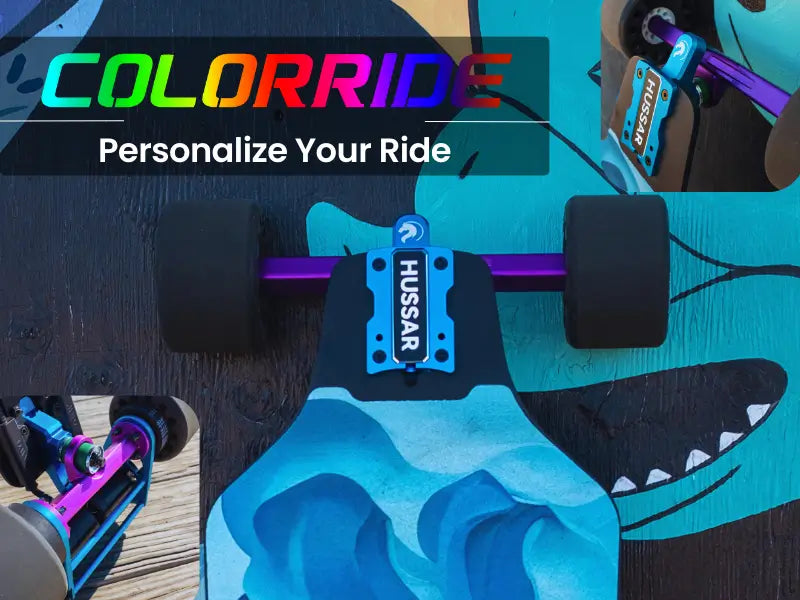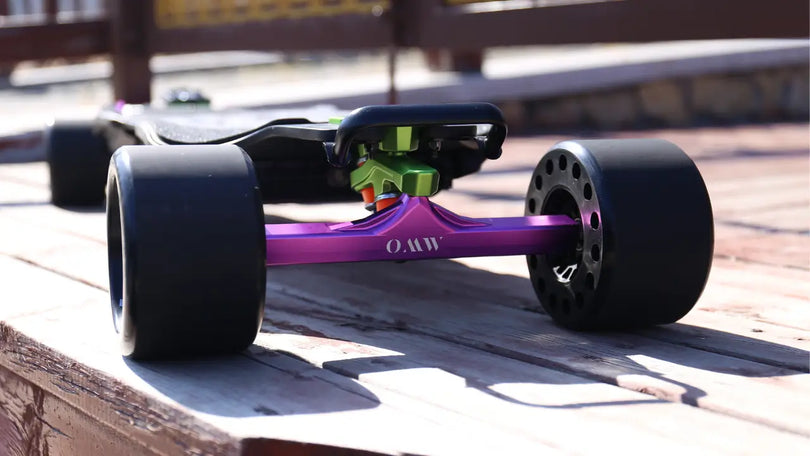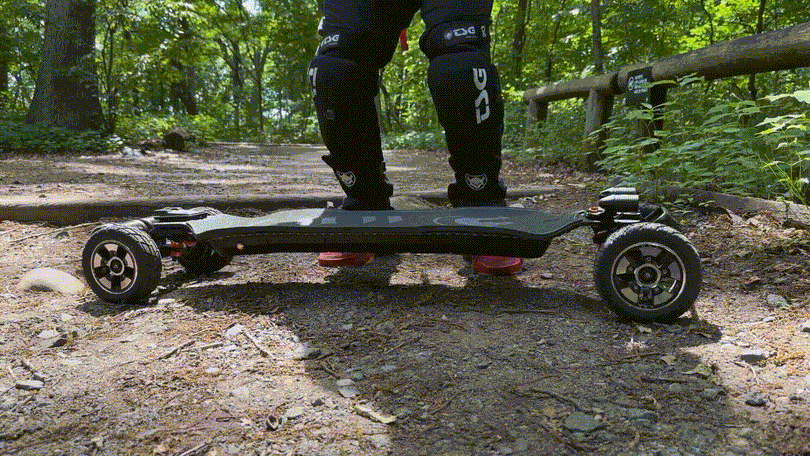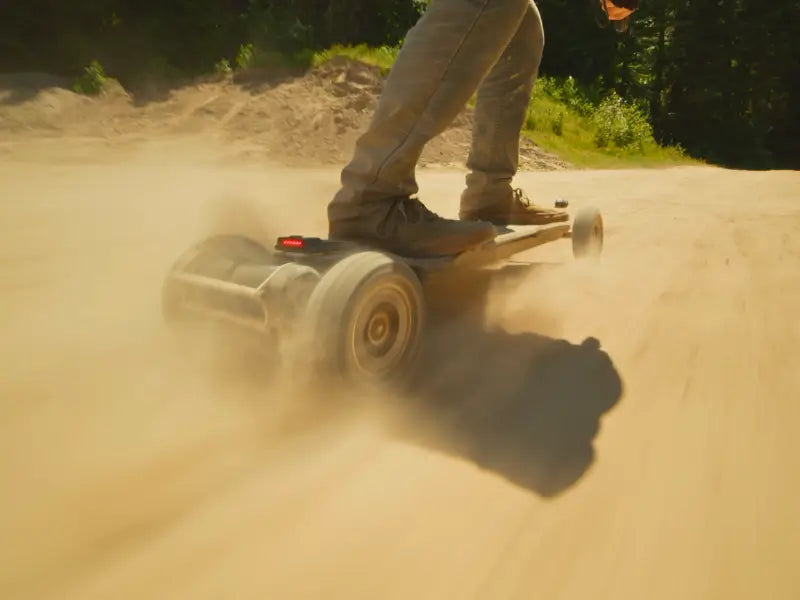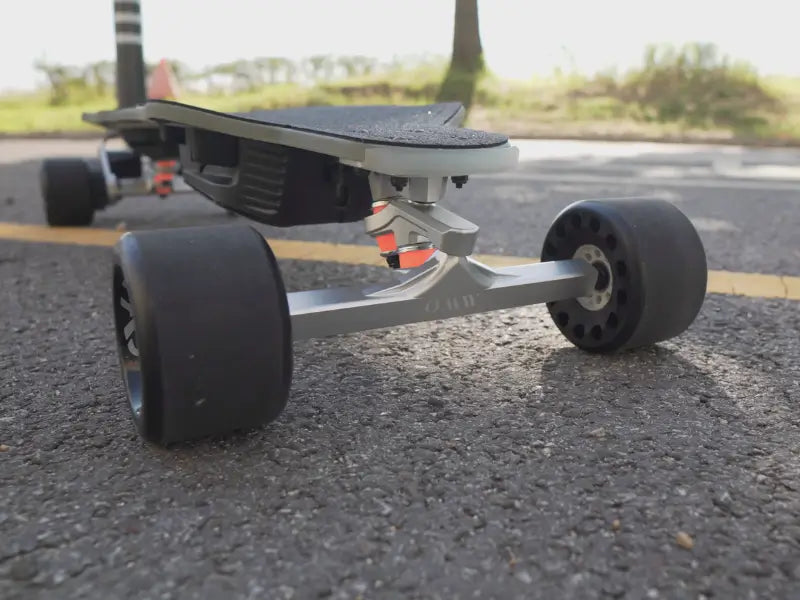For any DIY electric skateboard builder, the battery enclosure is the silent guardian of the entire system. It protects the most important—and potentially most dangerous—components, like the battery and Electronic Speed Controller (ESC). But in the world of DIY, choosing or crafting the right enclosure is often an afterthought, a mistake that can lead to major issues down the road.
This guide will walk you through the critical decisions you need to make when selecting or building your own battery enclosure, ensuring your electric skateboard is not only powerful but also safe, durable, and reliable.
 The Critical Role of the Battery Enclosure
The Critical Role of the Battery Enclosure
Battery enclosure of an electric skateboard is far more than just a box. Its primary function is to protect the delicate electronics within from a variety of threats.
- Impact and Vibration: On an electric skateboard, your components are constantly subjected to high-frequency, high-amplitude vibrations and sudden impacts. A well-designed enclosure absorbs these shocks and prevents internal short circuits or component disconnections.
- The Elements: Water, dust, and debris are constant enemies. While many companies claim "waterproof," most in the community agree that "water-resistant" is a more realistic goal, as moisture can always find a way in.
- Heat Dissipation: Batteries and ESCs generate significant heat, which can degrade battery life. A battery enclosure made from a material with high thermal conductivity, like aluminum, can help dissipate this heat.
 Design Elements to Consider
Design Elements to Consider
Here’s what to prioritize when designing or choosing an enclosure for your DIY build:
-
Structural Integrity
Ensure the battery enclosure is stiff enough to withstand vibrations and impacts during aggressive riding. -
Flex Compatibility
Especially with carbon or composite decks, pick the battery enclosures that move with the eboard—not against it, reducing stress on connections. -
Thermal Management
Materials like aluminum help dissipate heat faster than plastic, sustaining battery health and performance. -
Fire Safety
Use flame-retardant materials and consider fire-resistant end caps or internal barriers to enhance protection. Like OMW Cavalry's Explosion-proof battery enclosure, which promotes efficient cooling and safeguards the battery and components from impacts, shocks, and vibrations. -
Ease of Installation & Access
Ensure the enclosure design allows for comfortable mounting, maintenance, or upgrades.
Real-World Examples: OMW's Enclosures
Flexible Meets Secure: The Innovation Driving Ride Comfort
One of the toughest engineering challenges in electric skateboard design is balancing deck flexibility with battery pack rigidity. Too inflexible an enclosure can limit the deck’s natural movement, stressing internal components—but too flexible, and the battery cells might become loose or damaged.
This is where OMW's innovative solution shines. Their signature Chain Whip Battery Pack is designed to flex with the "segmented flex" designed carbon composite deck, ensuring your electrical connections stay secure throughout every lean and turn—while also providing enough internal rigidity to protect the battery cells from shifting during aggressive riding.

When riding OMW Hussar or Lancer, the synergy between the flexible deck and adaptive battery enclosure delivers unmatched comfort, whether you're bombing down a trail or cruising at high speed. The integrated design absorbs shocks and bumps, sparing your feet and knees from fatigue even on long-distance rides.
 Tips for DIY Builders
Tips for DIY Builders
- For flex decks, consider segmented or curved enclosures that can bend while maintaining internal rigidity.
- Use internal foam or silicone padding to absorb shocks without transferring stress to battery tabs.
- Vent or use high thermal conductivity materials if your build will encounter extended high-current output, like hill climbs or back-to-back rides.
- Make replacement easy: batteries age, and BMS failures happen—design for quick access and servicing.
In Summary: Design for Comfort and Safety
Always protect your battery—not only from crashes but from electrical and thermal stresses.
Let your enclosure move with your deck—rigid doesn't always mean safe.
Learn from innovative designs like OMW’s—combining safety with rider comfort is a winning formula.





